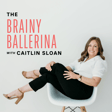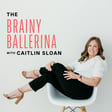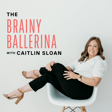
31. Navigating Life After Ballet with Elise & Stuart Lauer
Elise & Stuart Lauer are former professional ballet dancers that have since left the dance world to work full time in their side gigs. We met when dancing with Ballet Tucson and Elise and Stuart really took me under their wing when I was beginning my professional career.
In this episode, we chat all about how Elise and Stuart met at ballet boarding school and their transition into a professional dance career. We reminisce about our memories working together at Ballet Tucson, especially the lessons we learned from working with ABT legends John Gardner and Amanda McKerrow. Elise and Stuart share what led them to retire from dance and the path that led them to shift careers outside of the ballet world completely. We also get into their relationship with ballet today and the struggle we feel with enjoying dance recreationally when it used to be all-consuming.
Relationships are complicated, including the relationship we have with ballet. Elise and Stuart are incredibly transparent and open with their stories, which really helped validate many of the feelings I have had throughout my career and beyond.
Key Moments:
- How Elise and Stuart met at Virginia School of the Arts [1:56]
- Growing up together and getting their first contract at Milwaukee Ballet [8:37]
- Making the move to Ballet Tucson after not getting their contracts renewed [11:56]
- What led to Stuart and Elise staying at Ballet Tucson for the duration of their careers [16:18]
- What led to their retirement from professional ballet [29:59]
- Their transition into new careers outside of the ballet world [43:36]
- Stuart and Elise’s relationship with ballet today [53:38]
- Their children’s relationship to dance (and how they would feel about them pursuing dance as a career) [1:01:13]
- Their biggest pieces of advice for dancers pursuing a career [1:07:56]
Connect with Stuart and Elise:
INSTAGRAM: instagram.com/eliselauer
IRON JOHN’S BREWING: www.ironjohnsbrewing.com
JUNIPER: www.junipertucson.com
Links and Resources:
Get your copy of The Intentional Career Handbook
Set up ticketing for your next event with DRT (Make sure to mention that The Brainy Ballerina sent you!)
1-1 Career Mentoring: book your complimentary career call
Let’s connect!
My WEBSITE: thebrainyballerina.com
INSTAGRAM: instagram.com/thebrainyballerina
Questions/comments? Email me at caitlin@thebrainyballerina.com


